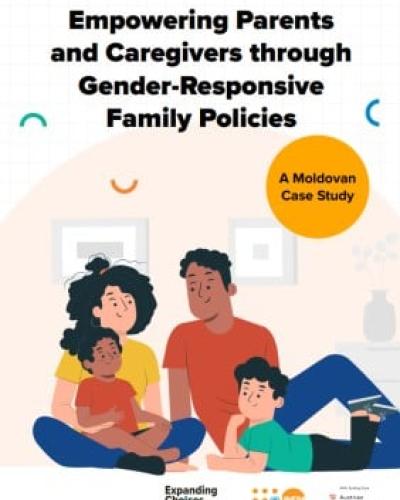A Moldovan case study: empowering parents and caregivers through gender-responsive family policies

In the Republic of Moldova, the unequal distribution of unpaid care work limits women’s full participation in the labor force. As of 2012, World Bank data showed that women in the Republic of Moldova were spending a fifth of their day on unpaid domestic and care work, nearly double the 11.3 percent of their day that men dedicated to these tasks.
This disparity hampers women’s opportunities to engage in full-time or higher-paying jobs. While the labor force participation rates of men in Eastern Europe and Central Asia region align with global trends, the figures for women display significant variation. Though some countries in Eastern Europe and Central Asia traditionally show a high rate of women’s participation in paid employment, the labour force participation rate of women in the Republic of Moldova stands at a relatively low 54 percent. This discrepancy underscores the challenges women face in reconciling unpaid work responsibilities with accessing labour market opportunities.
To address this issue, the Expanding Choices project in the Republic of Moldova adopts a rights-based and gender-transformative approach. This approach seeks to challenge and alter entrenched harmful gender norms and power structures that restrict women’s choices and opportunities. It strives to foster women’s economic empowerment and gender equality by advocating for women’s rights and agency, including their right to work, access to education and training, and participate in decision-making processes.







